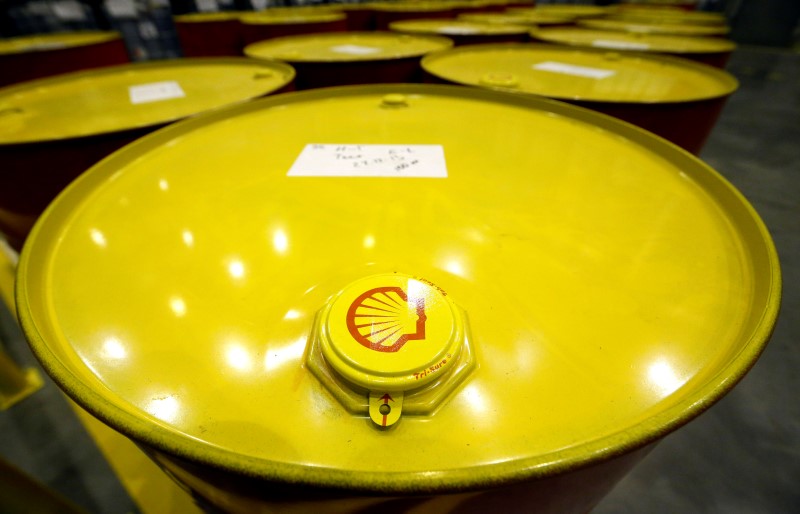By Ron Bousso
LONDON (Reuters) - Royal Dutch Shell's first oil field sale after its $54 billion BG Group acquisition bodes well for its disposal talks in the North Sea, Gabon and New Zealand, according to sources, signaling buyers will meet its expectations on value.
The $425 million deal in the Gulf of Mexico is welcome news for the Anglo-Dutch oil and gas giant which has struggled to kick off its plan to dispose of $30 billion of assets by 2018 or so in order to pay for the February deal and maintain a generous dividend policy amid soaring debt.
The sale of the Brutus/Glider fields to U.S. independent oil and gas company EnVen Energy Corp has an implied oil price of around $60 a barrel, more than $10 above today's prices, according to analysts at UBS.
"With oil prices appearing to have bottomed at the start of 2016 and a pathway toward higher levels into 2017/18 we may now be entering a period where both buyer and seller can see acceptable relative value - unlocking the A&D (acquisition and divestiture) market," the UBS analysts added.
Shell's Chief Financial Officer Simon Henry told Reuters earlier this year Shell (LON:RDSa) would not sell oil and gas fields at $48 a barrel in order to meet its target.
Further deals might prove harder to clinch however, as activity in the U.S. market picked up faster than other areas after more than two years of oil price declines and volatility led to a sharp slowdown in activity, industry sources said.
Shell is currently in advanced talks to sell a large portfolio of fields in the UK North Sea, an ageing basin with high production costs and strict regulatory requirements.
The company, which plans to exit operations in 5 to 10 countries, is also in talks to sell its portfolio in Gabon, New Zealand, Thailand and Tunisia, according to several sources.
The North Sea portfolio is a mix of mature fields and more attractive new developments such as BG's non-operating stake in Buzzard north of Aberdeen, a relatively new field that feeds into the global Brent oil benchmark.
Shell is also selling a share in its 55 percent holding in the BP-operated Schiehallion oilfield development some 110 miles (180 km) west of the Shetland Islands.
Other assets include the Nelson, Armada, Everest, Lomond and J Block fields, and Shell's stake in the Statoil-led Bressay development, sources close to the company said.
Potential buyers include Neptune, a venture headed by industry veteran Sam Laidlaw and backed by private equity funds Carlyle Group (NASDAQ:CG) and CVC Partners, as well as Siccar Point Energy, backed by Blue Water Energy and Blackstone (NYSE:BX).
A Shell spokesman declined to comment.
The Anglo-Dutch company, like its peers, has struggled to dispose of upstream assets, focusing instead on refining and storage assets which are less exposed to oil price volatility.
So far this year, Shell has sold $2 billion of assets, leaving relatively little time to hit its $6-$8 billion target.
"I think the $6 billion target is highly realistic," said Oswald Clint, senior analyst at Bernstein, which has an 'outperform' rating on Shell.
"If you track the last 5 years of divestment's by oil majors, all of them met them. Shell have a $30 billion target and I believe they can do it."
